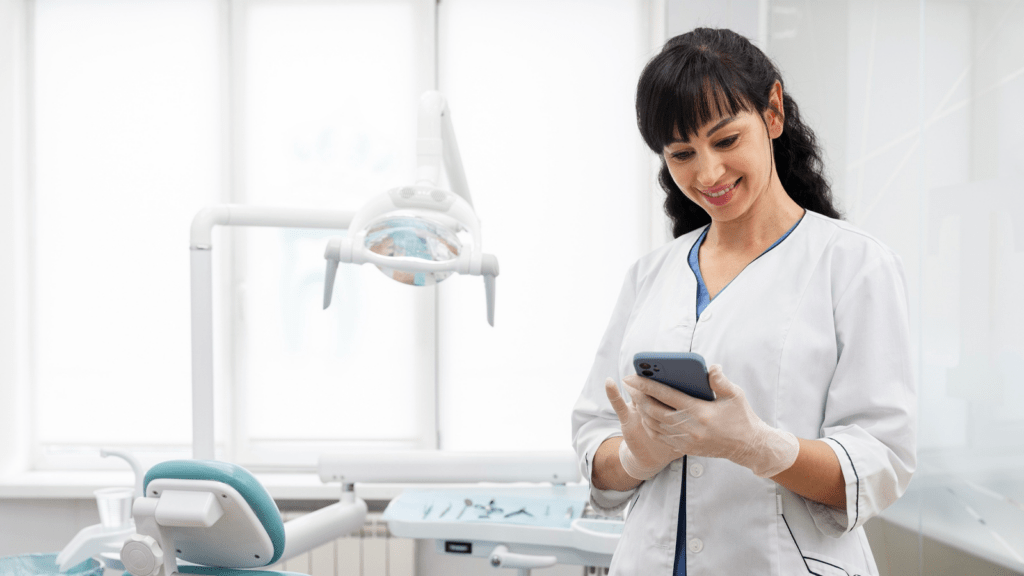
Dental offices and other medical professionals may have noticed rising costs associated with traditional phone lines, but VoIP might be the answer. Traditional dental office phone systems are experiencing an increase in costs for several reasons. One significant factor is the ongoing maintenance and upgrades required for the infrastructure supporting Public Switched Telephone Network (PSTN) technology.
The physical copper wires and associated equipment necessitate continual investment and upkeep. But the declining user base contributes to the rise in costs as more individuals and businesses opt for modern communication technologies such as Voice over Internet Protocol (VoIP).
With a diminishing subscriber pool, the expenses of maintaining the aging infrastructure are distributed among fewer users, leading to higher per-user costs. Meanwhile, companies like AT&T are eliminating copper lines in response to changing technology.
Regulatory and compliance costs also play a role in the increasing expense of traditional phone services. These services are subject to various regulations and compliance requirements, and adhering to these standards often involves additional expenditures. The technological obsolescence of traditional dental office phone systems contributes to their higher costs than more advanced alternatives like VoIP. Maintaining outdated technology becomes more expensive as finding replacement parts and skilled technicians becomes more challenging.
Saving money while maintaining clear communication with your patients and staff in a dental practice is easier than it sounds. But it might mean upgrading your dental office phone system to a cloud-based solution like VoIP. Here are a few cost-saving benefits:
Improved Patient Communication
VoIP is revolutionizing communication within healthcare settings, providing features that enhance patient engagement, streamline workflows, and improve overall efficiency. One key feature is call forwarding, allowing healthcare providers to route incoming calls to the appropriate personnel or department efficiently. This ensures that patients’ inquiries are promptly addressed, reducing wait times and contributing to a positive patient experience.
Unified Communications (UC) is a broader aspect of VoIP, integrating various communication channels such as voice, video, messaging, and collaboration tools. In healthcare, UC platforms provide a centralized hub for communication, supporting seamless collaboration among healthcare professionals and ensuring easy access to patient-related information.
Increased Patient Referrals and Retention
Patients who don’t have access to clear communication with their healthcare professional can quickly become frustrated. However, efficient communication can improve patient satisfaction.
VoIP features in healthcare communication create a patient-centric and efficient environment that directly contributes to increased patient retention and positive referrals. Through improved communication, engagement, convenience, and security, healthcare practices utilizing VoIP technology are better positioned to build lasting patient relationships and benefit from positive referrals.
Enhanced Security
Securing dental office phone system is important for any practice, but healthcare companies must remain secure to protect their patients and remain compliant.
VoIP systems often use encryption protocols to secure the transmission of voice data over the internet. The actual content of voice calls is encoded and can only be decoded by authorized parties. Encryption adds a layer of security, preventing eavesdropping and unauthorized access to sensitive information during voice communication.
VoIP systems can be configured with firewalls and security appliances to monitor and control network traffic. These devices help prevent unauthorized access, detect and block malicious activities, and protect the VoIP infrastructure from cyber threats such as denial-of-service (DoS) attacks.
VoIP systems in healthcare prioritize security and compliance. With encryption features and adherence to industry regulations such as HIPAA, VoIP ensures that patient privacy is maintained, and communication remains secure and compliant.
Look into Switching to VoIP
The financial benefits of VoIP for dental practices are undeniable. By switching to VoIP for your dental office phone system, practice owners can save money on phone bills, improve communication with patients, and streamline their workflow. With the added benefits of call recording, voicemail transcription, and advanced call routing, VoIP is the perfect solution for dental practices looking to improve their communication systems.
If you are a dental practice owner looking to optimize your communication systems, we strongly encourage you to consider switching to VoIP. With the variety of features and benefits that VoIP offers, it is a smart investment that will pay off in the long run. Contact Rhode Island Telephone today to request a quote and learn more about upgrading your business communications and saving money. Don’t wait any longer to improve your practice’s communication – make the switch to VoIP today!




